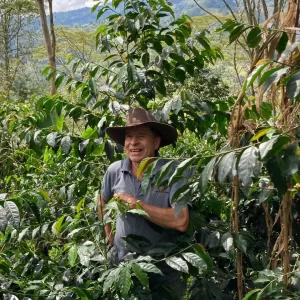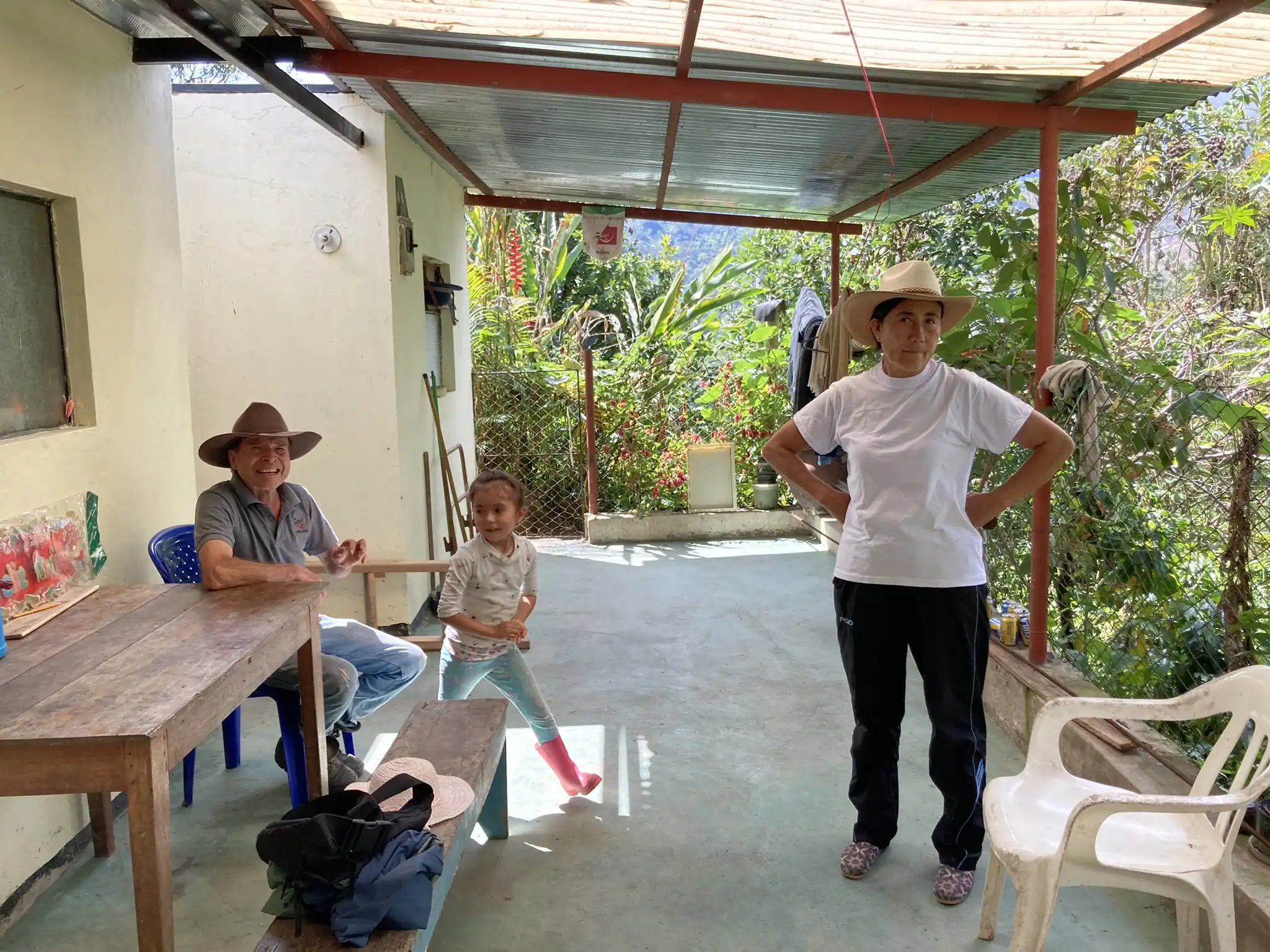
Nemecio Borda

We consider Mr. Borda’s family, along with his wife Luz Marina and their son Edison Borda, one of the reasons we do what we do. We have known each other since 2017 and this relationship has greatly influenced the very creation of Chicas Industry. We strive to support the family in their continued growth, building new infrastructure and improving the existing one, and we are always looking for new ways to expand our collaboration. Mr. Nemecio farms El Volcán, where he and his wife, Luz Marina, used to live and where they raised all their children and children from surrounding farms.
We are very much in touch with the family, especially through their son Edison, who actually introduced both parents to choice coffee a few years ago. Together with him we are working on improving the processing processes, on new experiments with honey and the natural processing method and to support them in their efforts we have purchased a hygrometer, a very essential tool for measuring the moisture content of drying coffee. Since now all their investments and borrowed money are going to build a processing station, a warehouse and a coffee lab, we have been able to help them at least in this way for the time being. In the future, we at Chicas would like to help them improve their coffee drying infrastructure. We have plans to install better awnings for drying, complete with a moisture extraction system that will be powered by solar energy. If you would like to support the farm, become a subscriber, or otherwise get involved directly with them, please get in touch!
COUNTRY
Colombia
REGION
Rondón, Boyacá
FARM
El Volcán
ALTITUDE
1750 m
SIZE OF THE FARM
1 ha
COFFEE VARIETIES
the predominant variety is Colombia, there are also trees of Týpica, Caturra, Pink Bourbon or Maragogype
ABOUT THE FARM
The family farms on 4 „farms“, or plots of land that are 5 to 10 minutes apart. The farm El Volcán, the family home with the plantation, is the basis of the farm, which is looked after by Mr. Nemecio. The coffee is planted here at an altitude of 1750 m on an area of about 1 ha and is planted with a mixture of Colombia varieties, which predominates, then Castillo, Týpica, we also found Red and Yellow Bourbon and Maragogype. The family is currently planning to renovate the El Volcán plantation, planting single varietal lots, such as the Pink Bourbon (this variety had its first harvest this year and is present in the microlot to a small extent) and preserving some of the original varieties.
The village of Rondón, in whose jurisdiction the plantations are located, has a harvest only once a year, unlike most of Colombia, due to the hydrometeorological conditions.
ABOUT THE PROCESSES
Mr. Nemecio and his wife Luz Marina got into the coffee selection relatively recently. Their son and agro-engineer Edison, who also oversees the processing, convinced them to change the traditional processes. They focus mainly on washed coffees with traditional fermentation, but are also starting to experiment with naturals and with the time and type of fermentation for washed and honey coffees.
Colombia - washed (LOT CO-23-028)
This lot was harvested in January 2023 and is a Colombia variety, this variety predominates, here and there there are grains of Tabi, Týpica or Castilla. Lot bl processed by double fermentation. After harvesting, the ripe cherries were fermented for 12 to 16 hours overnight, after which they were immersed in water to remove the ‚flotes‘, floating cherries of poor quality. This was followed by removal of the skin and some of the flesh and further aerobic fermentation for 24 hours. The coffee was then washed and dried in a rooftop drying oven.
This year Nemecio had to struggle, as there was a severe shortage of labor in the Rondon area, so his coffee sometimes almost over-ripened on the bushes. But everything worked out well and this year we brought you the fruits of his labor.
Colombia, Týpica - washed with longer fermentation
Harvested in January 2022, this lot is a blend of Colombia (predominance), Tabi (about one third), Týpica and Castillo and was processed by double fermentation. After harvesting, the ripe cherries were fermented for 12 to 16 hours overnight, after which they were immersed in water and the so-called ‚flotes‘, floating cherries of poor quality, were removed. This was followed by removal of the skin and some of the flesh and further aerobic fermentation for 24 hours. The coffee was then washed and dried in a rooftop drying oven.
CO-24-049
The coffee is fermented in the cherry in the hopper of the wet mill for 24 hours, then the coffee is cleaned in the wet mill and fermented again in the tanks for another 24 hours or so. It is then washed again in the wet mill and put into the drying ovens. Drying takes place over a period of about 12 days and under the heat of the sun.









